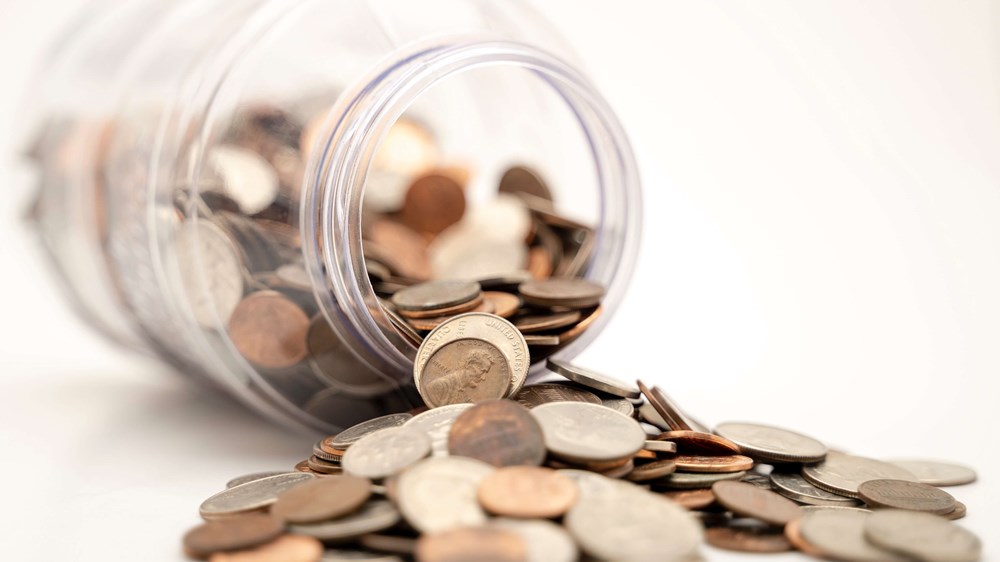Covid-19* has had a massive impact on the world, causing many of us to swap commutes to the office with a quick walk to the next room, and nights out with our friends became virtual quiz nights and time spent enjoying the great outdoors on our doorsteps.
And you probably don’t need us to tell you that it has also influenced many people’s finances – both for the better and the worse.
In fact, you may be surprised to learn that many people were able to save more money during this time than they were before Covid-19 burst onto the scene. According to statistics from YouGov, a third of UK households actually saw their savings increase during the pandemic.1
And yes, these savings were made despite some of us ‘investing’ in a new loungewear wardrobe to relax (okay, and sometimes work) in during lockdown.
But it’s not just us Brits who have been squirreling away the cash that we may have overwise spent on petrol, meals out, holidays and the like since we first went into lockdown.
Next on the list of the biggest savers during the pandemic (which is made up of 16 countries in total) is Denmark, followed by Sweden and the US1.
Why did some people’s savings increase during lockdown?
This is a pretty easy question to answer, really. We can assume this is largely down to international holidays, festivals and other big events being off the table, and restaurants, cinemas, theatres, and other businesses being shut for much of the past year in the UK.
Not only that, but think about the costs that come with going into an office to work each day – alongside petrol and train fares, how many times a week were you buying takeaway coffees and lunch meal deals because you forgot to bring one from home?
Another reason that individuals may have been reluctant to spend during the past year is due to the great deal of uncertainly that was caused by the pandemic.
Many industries were hit hard, with staff being furloughed and people sadly losing their jobs due to businesses closing their doors.
If you’re one of the lucky ones that have seen your savings increase over the past year, and are in a position to spend them if you wish to, then you may be wondering what to do with the extra cash now that the world has started to open up again and we can finally see our friends and loved ones.
Are you itching to get out and start spending to make up for lost time, or are you keen to hold onto your money in case something like this happens again?
If you’re unsure of the best approach to take, here’s a few things to consider.
What are people going to do with their lockdown savings?
If you’re not in a rush to start splashing the cash, you’re certainly not alone. Another study (this time carried out by the Bank of England in March 2021) reveals that only 27% of households planned to spend some of their savings and that only 13% were prepared to spend more than half of what they had saved.2 Instead, the vast majority said they would simply keep the extra money they gained in their bank accounts.
However, it is worth noting that more people said they will be spending their savings than when the survey was originally conducted in September 2020.
The study also shows that the third most popular intention was to use savings to pay off debt. This was followed by investing in financial products and putting a deposit down on a property – though each of these came in at less than 20% of those surveyed.
Other less popular uses that were identified were using the money to fund home improvements, gift it to someone, and to top up a pension.
So, should you spend or save your money?
If you’re undecided about what to do with any extra savings you’ve accrued, you may have already considered some of these options.
For example, you may want to put it towards a deposit if you’re hoping to get on the property ladder (even though UK house prices reached a record high between May 2020 and May 2021)3 or make improvements to your home if you already own it (I think we all went on a home makeover kick after spending so much time there).
However, if you’re new to investing, or are still a few years off retiring, then investing in financial products or topping up your pension probably never crossed your mind.
So, what could you do with your savings? With the future still steeped in so much uncertainty, it doesn’t hurt to be prepared by having a rainy-day fund.
The last year has shown us to expect the unexpected, and although you may have been lucky enough to make some additional savings during the pandemic, the same can’t be said for everyone – and the wheel of fortune can spin at any time.
Not everyone got to take advantage of putting away the money they’d usually have spent on transport, childcare, fancy lunches in the office, and the like. Sadly, quite the opposite.
A study that compared the changes in household spending when the UK started to re-open after the first lockdown (between July to September) to February 2020 found that 36% of families on the lowest income saw their spending increase.4
But if you do want to err on the side of caution (and who could blame you?), leaving your money to sit in your bank account until you need it may not necessarily be the best option, though – especially if you want to give your savings the potential to grow further.
Why invest your lockdown savings?
If you leave the money in your bank account - or even transfer it to a general savings account – you could be missing out on the opportunity to make it work harder. This is because most basic bank and savings accounts will allow your cash to accrue very little interest.
With a little something called a Stocks and Shares ISA, you can take advantage of the UK’s yearly ISA allowance (which is £20,000 for the 2024/25 tax year) to invest your money and give it a chance to grow – and the best thing is, you won’t pay any capital gains or income tax as it grows.
And when you choose a platform like Wealthify to invest, we will diversify your portfolio by putting your money in a number of different investments (which will vary depending on the type of Plan you choose) to spread out your risk and help give your money more potential.
If you’re concerned about the environment or are passionate about social issues, you can even choose to invest in ethical companies that align with your personal values and are committed to doing good.
And even if you didn’t see your savings grow as much as you wanted them to in lockdown, you can still invest if you want to. It’s an outdated myth that you can only invest in the stock market if you’re sitting on a big wad of cash.
With the new wave of robo-investment platforms (like Wealthify), you can set up your investment plan with as little as £1. But remember, with investing your capital is at risk and you could get back less than you put in.
If you choose a Wealthify Stocks and Shares ISA, all you need to do is specify how much you want to initially invest and how much you want to invest monthly – if you want to carry on paying into your Plan on a monthly basis, of course.
At Wealthify, there is no obligation to, and there is no minimum monthly investment for our Stocks and Shares ISAs or General Investment Accounts.
You can also choose from our five investing styles (which determine how much of a risk you want to take when investing). Next, just let us know if you want an Original or Ethical Plan.
We will then make the investment decisions for you while you keep up to date with how your Plan is performing using our handy app or online dashboard.
We also offer low fees to manage your Plan and allow you to start investing easily and affordably.
And if you do need to dip into your savings, your money isn’t locked away – you can withdraw it anytime without penalty. No questions asked.
Ready to see if you can get more from your lockdown savings? Find out more about our Stocks and Shares ISAs and see how much you could gain.
References:
*Please note that all information in this blog was correct at the time of writing.
- https://www.bloomberg.com/news/articles/2021-06-19/british-hoard-more-cash-than-16-other-countries-during-pandemic
- https://www.bankofengland.co.uk/bank-overground/2021/how-have-households-spending-expectations-changed-since-last-year
- https://news.sky.com/story/average-uk-house-price-surges-by-10-and-nears-record-high-12355676
- https://www.bbc.co.uk/news/business-55618528
The tax treatment depends on your individual circumstances and may be subject to change in the future.
Please remember the value of your investments can go down as well as up, and you could get back less than invested.




